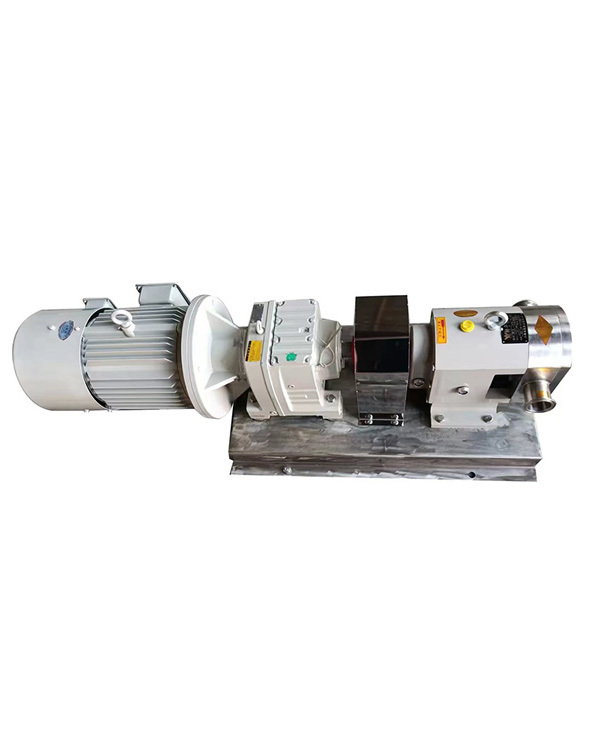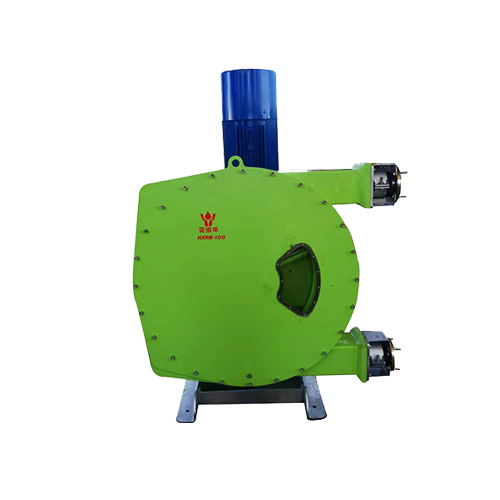Exploring the Advantages of Rotary Lobe Pumps for Wastewater Sludge Management
Jun 20,2025

In the realm of industrial equipment, particularly within the wastewater treatment sector, rotary lobe pumps have emerged as a preferred choice for managing wastewater sludge. These pumps are specifically designed to handle viscous and abrasive materials, making them a vital component in sludge transfer, dewatering, and treatment processes.
One of the key advantages of rotary lobe pumps for wastewater sludge is their ability to handle solids without significant degradation. Unlike centrifugal pumps, which can struggle with high-solid content, rotary lobe pumps utilize a pair of lobes that rotate in synchronization, creating a sealed chamber that effectively moves sludge through the pump without causing shear or damage to the material. This characteristic is crucial, as it helps maintain the integrity of the sludge while ensuring efficient transport.
Another notable benefit is their versatile flow rate capabilities. Rotary lobe pumps can easily adjust to varying sludge compositions and flow requirements. This flexibility enables facilities to maintain optimal performance, even as the characteristics of the sludge change over time due to fluctuations in wastewater input or treatment processes.
Moreover, rotary lobe pumps are known for their operational efficiency. The design of these pumps allows for a relatively low energy consumption rate compared to other pump types. This efficiency is critical for wastewater treatment plants, where energy costs can be a significant portion of operational expenses. The positive displacement mechanism ensures that the pumps maintain a consistent flow, reducing the risk of pulsation and enhancing system stability.
Maintenance is another area where rotary lobe pumps excel. The modular design of many rotary lobe pumps allows for easy access to internal components, facilitating quick inspections and repairs. This ease of maintenance not only minimizes downtime but also extends the lifespan of the pump, making it a cost-effective solution for many wastewater treatment facilities.
Additionally, rotary lobe pumps can operate in a variety of conditions, including those with high temperatures and corrosive environments. Their robust construction materials and customizable configurations allow for application in diverse scenarios, from municipal wastewater treatment to industrial processes involving various sludge types.
In summary, rotary lobe pumps are an excellent choice for wastewater sludge management, offering a range of benefits including solid handling capability, adaptable flow rates, energy efficiency, and low maintenance requirements. As industries continue to seek efficient and reliable solutions for wastewater management, the adoption of rotary lobe pumps is likely to grow, further establishing their importance in the industrial equipment landscape.
One of the key advantages of rotary lobe pumps for wastewater sludge is their ability to handle solids without significant degradation. Unlike centrifugal pumps, which can struggle with high-solid content, rotary lobe pumps utilize a pair of lobes that rotate in synchronization, creating a sealed chamber that effectively moves sludge through the pump without causing shear or damage to the material. This characteristic is crucial, as it helps maintain the integrity of the sludge while ensuring efficient transport.
Another notable benefit is their versatile flow rate capabilities. Rotary lobe pumps can easily adjust to varying sludge compositions and flow requirements. This flexibility enables facilities to maintain optimal performance, even as the characteristics of the sludge change over time due to fluctuations in wastewater input or treatment processes.
Moreover, rotary lobe pumps are known for their operational efficiency. The design of these pumps allows for a relatively low energy consumption rate compared to other pump types. This efficiency is critical for wastewater treatment plants, where energy costs can be a significant portion of operational expenses. The positive displacement mechanism ensures that the pumps maintain a consistent flow, reducing the risk of pulsation and enhancing system stability.
Maintenance is another area where rotary lobe pumps excel. The modular design of many rotary lobe pumps allows for easy access to internal components, facilitating quick inspections and repairs. This ease of maintenance not only minimizes downtime but also extends the lifespan of the pump, making it a cost-effective solution for many wastewater treatment facilities.
Additionally, rotary lobe pumps can operate in a variety of conditions, including those with high temperatures and corrosive environments. Their robust construction materials and customizable configurations allow for application in diverse scenarios, from municipal wastewater treatment to industrial processes involving various sludge types.
In summary, rotary lobe pumps are an excellent choice for wastewater sludge management, offering a range of benefits including solid handling capability, adaptable flow rates, energy efficiency, and low maintenance requirements. As industries continue to seek efficient and reliable solutions for wastewater management, the adoption of rotary lobe pumps is likely to grow, further establishing their importance in the industrial equipment landscape.
PREVIOUS:
Contact Us
E-mail :
sales@yaquanpump.com
service@yaquanpump.com
Phone/WhatsApp:
+44 7301702546
+63 9452052801
Address:
Room B208, Building 2, North Hongqiao Songri Center, No.215 Gaochao Road, Jiading District, Shanghai









